Trench Periscope

A 3.25 inch (8.26 cm) deep by 4.5 inch (11.43 cm)wide by 13 inch (33.02 cm) high grey wooden box with a 45 degree mirror at either end with a 3 inch (7.62 cm) by 4 inch (10.16 cm) viewing slot on each end. Early trench periscopes were made by installing two mirrors at 45-degree angles […]
Hinged Trench Mirror “Vigilant” WW 1
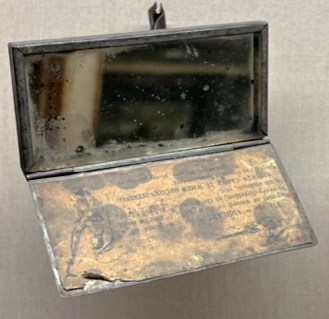
This 2 inch (5.08 cm) by 3.5 inch (8.89 cm) mirror was designed to be clipped to a bayonet on a rifle. The mirror is hinged to be closed when not in use, as to avoid a gunner’s attention and protect the mirror. If a soldier held the rifle upright above the parapet of a […]
Seasons Greetings from the 48th Highlanders Officers 1914 New Years 1915
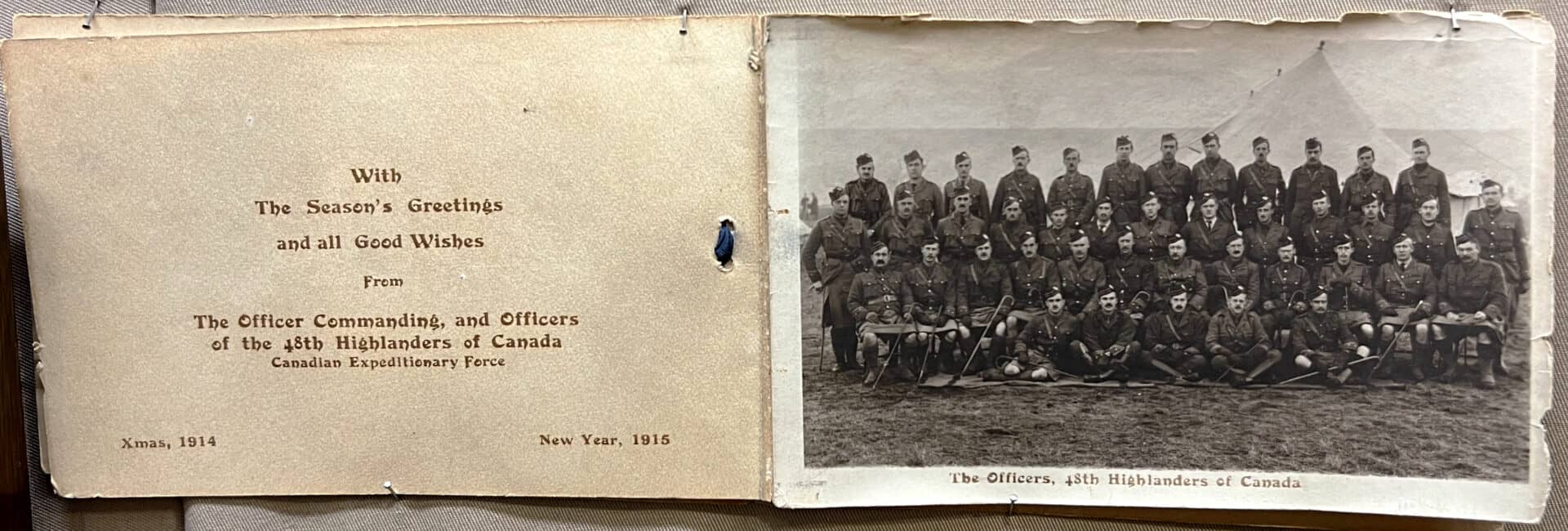
A Christmas card for Christmas 1914 and New Years 14/15. Photo of Officers of the 15th Battalion (48th Highlanders) on the right inside.
Wire Cutters
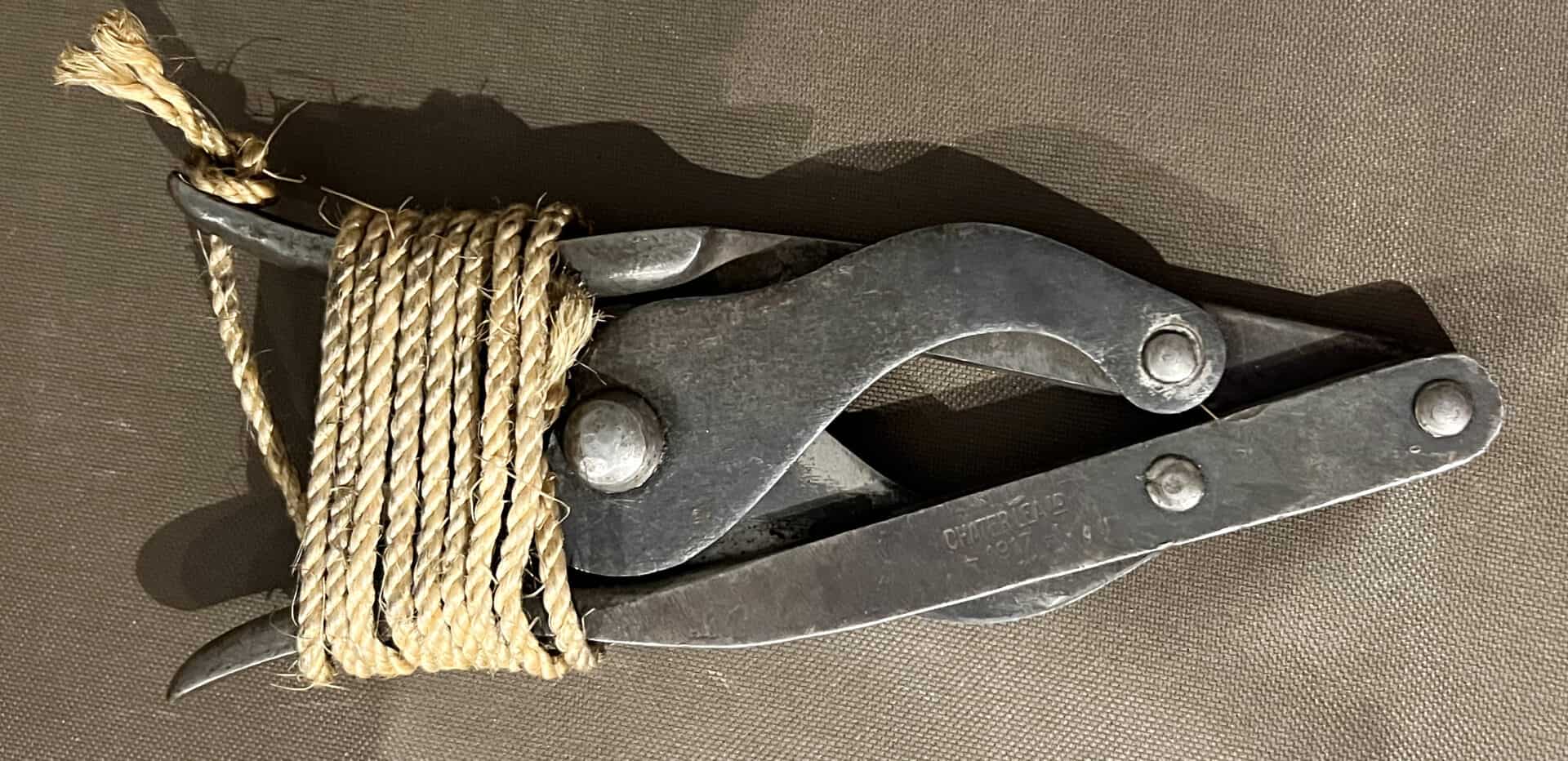
Hundreds of thousands of miles of barb and razor wire were laid by both sides during the First World War. As the war transitioned from a war of movement to defensive one barbwire became instrumental to trench warfare. It offered an extremely cheap and easy way to create defence in depth. It was artillery resistant, […]
Kingston Road trench sign – The Somme area
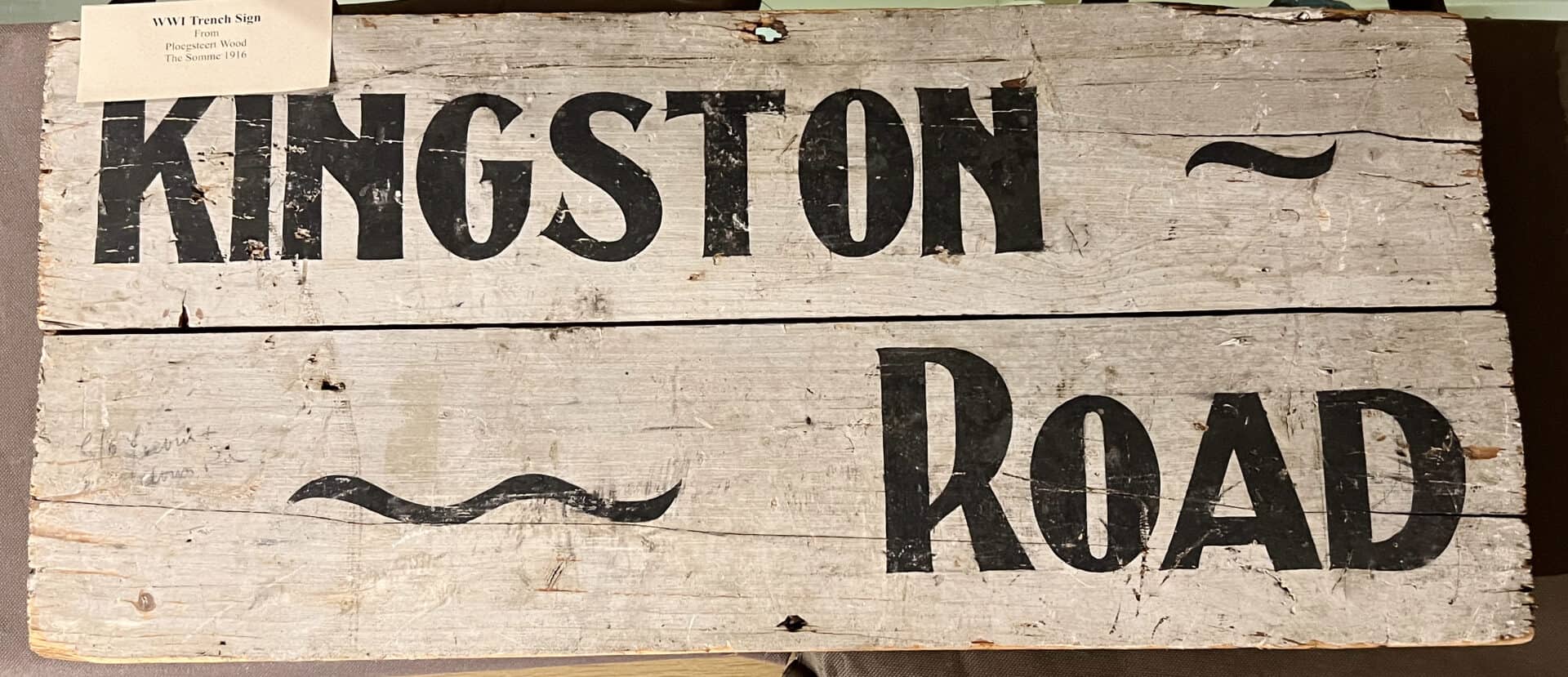
An 11 inch (27.94 cm) by 24 inch (60.96 cm) sign for the Kingston Road trench at Ploegsteert Wood, The Somme in 1916. Signage was used to guide and direct troops to assigned locations. The sign has much damage shown along the edges from its hard life in the trenches. Of all the many thousands […]
Leather Sporran with 92nd Battalion badge
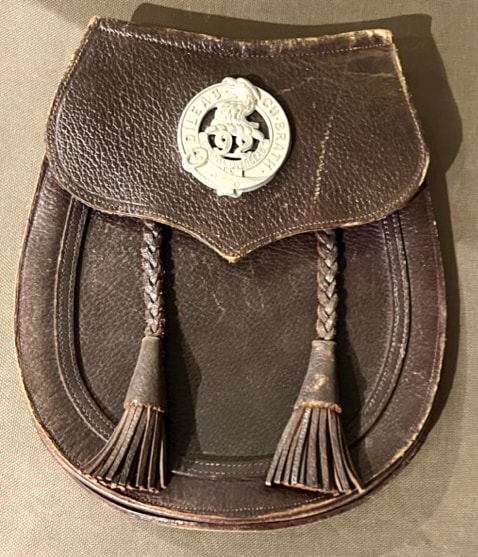
A 92nd battalion badged leather sporran in brown leather with two tassels and a 92nd Battalion badge, worn with kilt and uniform when out of the trenches. Standard issue by 48th Highlanders. The sporrans are usually brown leather shovel pouches with simple adornment. These “day” sporrans often have three or more leather tassels and frequently […]
Dayfield Body Shield
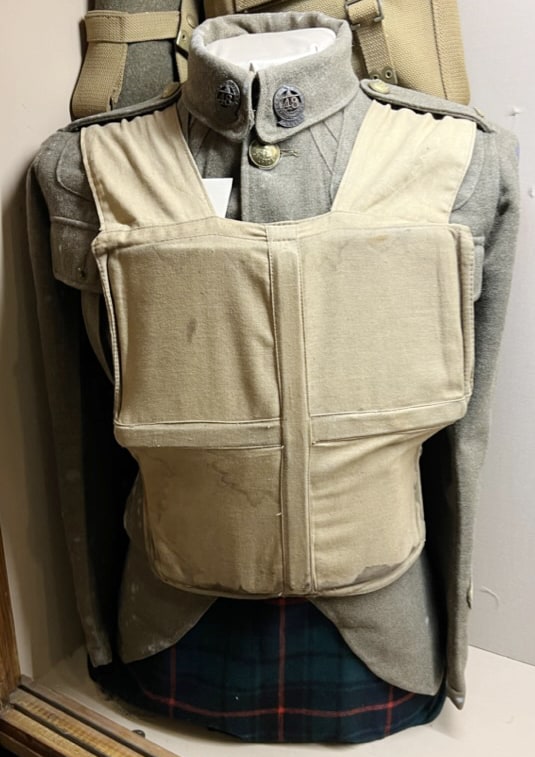
The Dayfield Body Shield was manufactured during WWI for purchase, marketed at families of soldiers fighting on the front line, rather than for issue by the British Army to soldiers. It consists of steel plates on the front and back, and was worn under the coat to protect the wearer from bullets. Such shields were issued to […]
Pte Paquet, A. Portrait in kilt uniform, Belgium 1918 S/N 23715
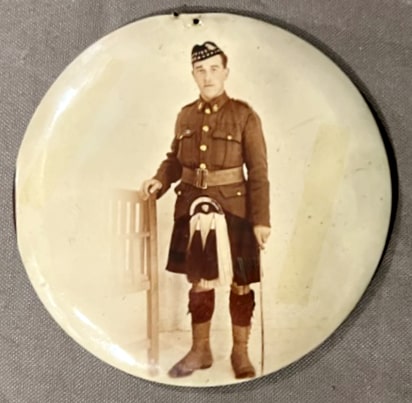
A 6 inch circular portrait of Pte Paquet, A. in Belgium 1918 S/N 23715 wearing his dress uniform.
Pte Paquet, A. – portrait in Belgium 1918 S/N 23715
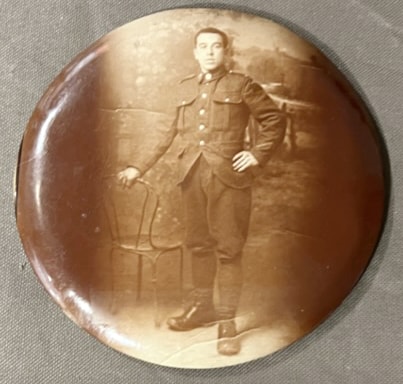
A 6 inch circular portrait of Pte Paquet, A. in Belgium 1918 S/N 23715 wearing his working uniform.
92nd Battalion B Coy #6 Platoon Toronto 1916 portrait
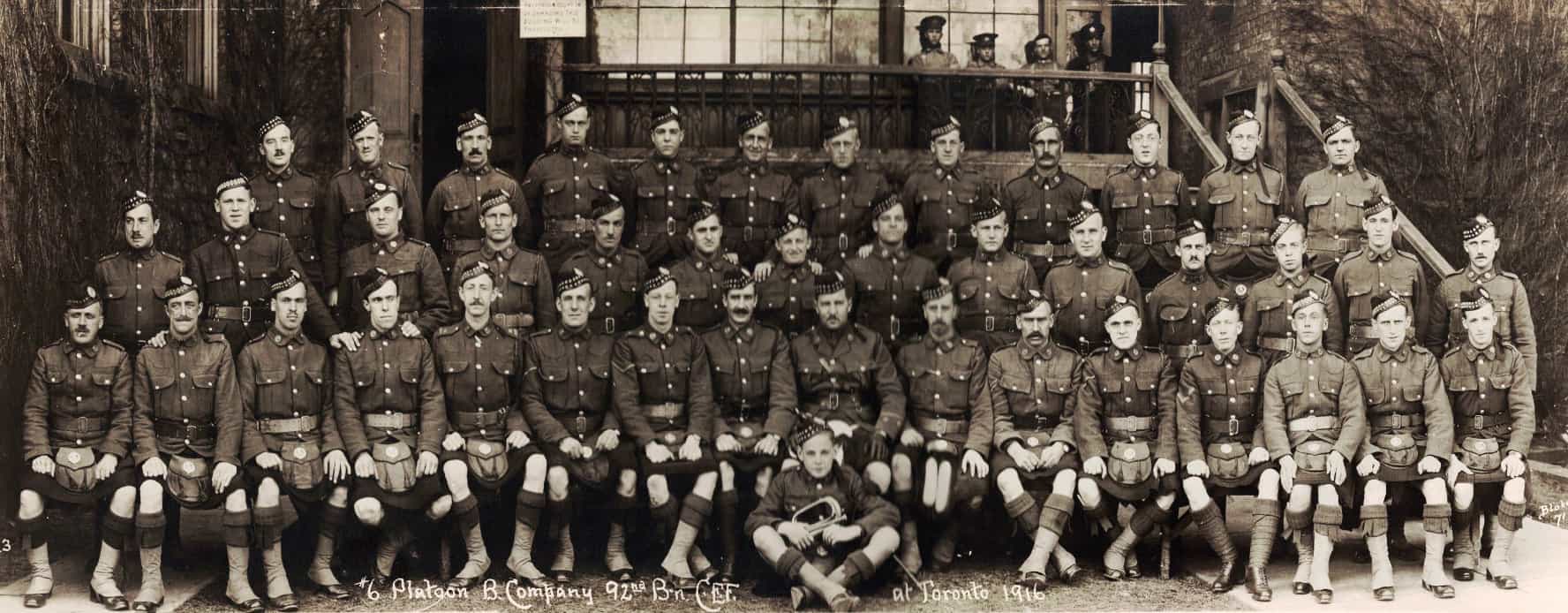
A 7.125 inch by 19.5 inch portrait of the 92nd Battalion “B” Company #6 Platoon taken in Toronto in 1916.
